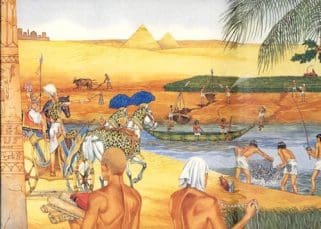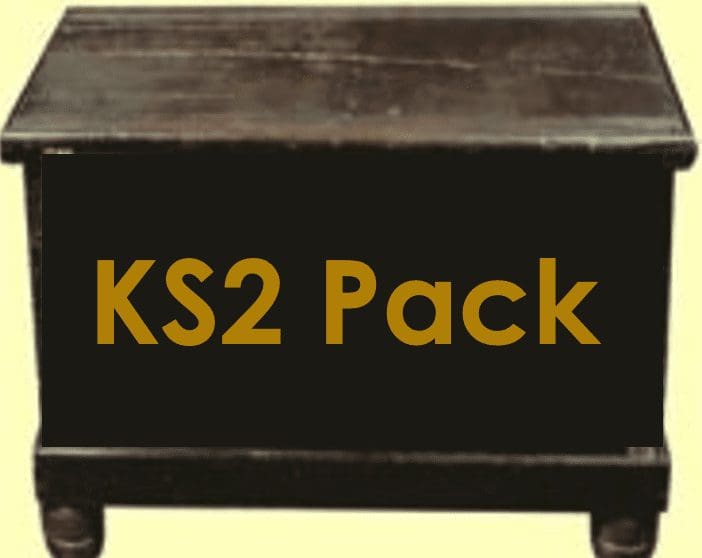Teaching Chronology at KS2
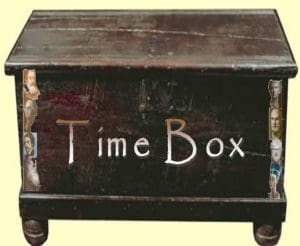 Everyone knows that chronology is one of the key historical concepts pupils need to learn, and yet in very few schools is it given serious attention. Unless the subject leader makes a determined attempt to plan for the progressive development of chronological understanding across the key stage, it is simply left to chance. What this means, in reality, is that pupils have a reasonable understanding of the sequence of events WITHIN topics, but a very poor grasp of how the topics LINK.
Everyone knows that chronology is one of the key historical concepts pupils need to learn, and yet in very few schools is it given serious attention. Unless the subject leader makes a determined attempt to plan for the progressive development of chronological understanding across the key stage, it is simply left to chance. What this means, in reality, is that pupils have a reasonable understanding of the sequence of events WITHIN topics, but a very poor grasp of how the topics LINK.
In many ways this is almost inevitable given the fact that year teams tend to teach particular topics and rarely assume responsibility for showing how they link to other topics being studied. There are some who believe that this is a problem caused by failing to teach in chronological sequence , but even if pupils were taught topics in strict chronological sequence, this is not foolproof. How do you explain to pupils that the Tudors do not follow on from the Vikings? Furthermore, pupils do not study events in Britain that are taking place while Egyptian and Greek civilizations were flourishing, so how can they place British history in a broader context? So, if teaching in chronological order is not the answer, what is? Below I offer five approaches that you could use to significantly improve pupils’ chronological understanding. You can also find advice here
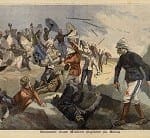 Benin – KQ5 – Why did the Victorians get involved in Benin and what were the effects on the Benin people? SMART TASK - Following an intriguing slow reveal of an interesting Victorian photograph showing the capture of the Oda’s palace in Benin, pupils create their own living graph to show Benin’s changing fortunes during the frantic decade of the 1890s. They then look for three key turning points in the story of how and why Benin became absorbed into the British Empire. The… Read More
Benin – KQ5 – Why did the Victorians get involved in Benin and what were the effects on the Benin people? SMART TASK - Following an intriguing slow reveal of an interesting Victorian photograph showing the capture of the Oda’s palace in Benin, pupils create their own living graph to show Benin’s changing fortunes during the frantic decade of the 1890s. They then look for three key turning points in the story of how and why Benin became absorbed into the British Empire. The… Read More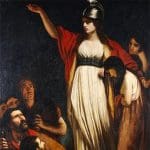 Roman Britain – KQ2 part 2 – Boudicca’s rebellion: from sequencing to living graph - This KS2 lesson on Roman Britain uses the idea of a living graph to see the ups and downs of Boudicca's life as a way of helping children make sense of the narrative of events. They start by looking at the causes and sequencing the events of the revolt before looking at the impact on Boudica (Boudicca). By taking this… Read More
Roman Britain – KQ2 part 2 – Boudicca’s rebellion: from sequencing to living graph - This KS2 lesson on Roman Britain uses the idea of a living graph to see the ups and downs of Boudicca's life as a way of helping children make sense of the narrative of events. They start by looking at the causes and sequencing the events of the revolt before looking at the impact on Boudica (Boudicca). By taking this… Read More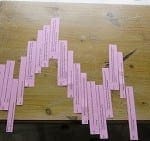 Vikings – KQ3 – How did the Vikings try to take over the country and how close did they get? - This task encapsulates the struggle between the Anglo-Saxons and the Vikings in an engaging way that really makes pupils think about the dynamics of the conflict - rather than 'one damn event and treaty after another'. By using a technique called living (or fortunes) graph, pupils have to work collaboratively to create and then analyse a visual representation of the… Read More
Vikings – KQ3 – How did the Vikings try to take over the country and how close did they get? - This task encapsulates the struggle between the Anglo-Saxons and the Vikings in an engaging way that really makes pupils think about the dynamics of the conflict - rather than 'one damn event and treaty after another'. By using a technique called living (or fortunes) graph, pupils have to work collaboratively to create and then analyse a visual representation of the… Read More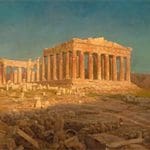 Ancient Greece – KQ1 Part 1 – How can we possibly know so much about the Ancient Greeks who lived over 2,500 years ago? - Any study of ancient Greek society must begin with an appreciation of the physical features of Greece. Landform and climate do not explain the vast and varied achievements of the ancient Greeks, but they have determined and influenced many of the political economic and social developments for which ancient Greece is remembered. These introductory activities help KS2 pupils locate Ancient… Read More
Ancient Greece – KQ1 Part 1 – How can we possibly know so much about the Ancient Greeks who lived over 2,500 years ago? - Any study of ancient Greek society must begin with an appreciation of the physical features of Greece. Landform and climate do not explain the vast and varied achievements of the ancient Greeks, but they have determined and influenced many of the political economic and social developments for which ancient Greece is remembered. These introductory activities help KS2 pupils locate Ancient… Read MoreGrasping the chronology nettle
Everyone knows that chronology is one of the key historical concepts pupils need to learn, and yet in very few…
Read MoreRunning timebox – First and foremost
Why Timebox teams? First and foremost, Timebox Teams should be fun. Behind the serious intent of improving pupils’ chronological knowledge…
Read MoreTimebox – KS2 Pack
Mention the teaching of chronology to most infant teachers and their eyes glaze over. Their experience is that it is…
Read More
